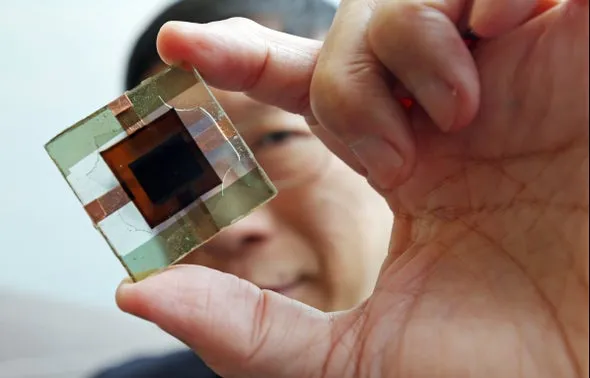Perovskite to boost energy harvest of solar cells
- Perovskites are likely to become a cost-effective and high-efficiency alternative for making solar cells as soon as they become as stable as silicon.

Perovskites are a high-potential material for PV cell manufacturing. Australian and Chinese scientists are working to utilize them for making solar devices with higher efficiency and lower price. The prospective solution is combining them with stable and wide-spread conventional silicon cells.
One of the crucial steps in advancing the PV devices is increasing their light-to-electricity conversion rate. Performance of silicon solar panels usually range between 16-18 percent, while theoretically it can be raised up to 29 percent.
As for photovoltaic devices made from perovskite, their efficiency can reach 35 percent. At the same time, production of such cells is much faster, easier and cheaper. Moreover, in contrast to Si-based panels, they do not require high temperature.
Today, the biggest issue concerned with perovskite-based solar panels is their stability. Crystals of perovskite are highly soluble, so they have to be protected against humidity.
Australian scientists propose a solution for this problem through a combination with silicon. Such a tandem is expected to make the solar device both more durable and more efficient.
The group of researchers from ANU states that joining two materials is an effective approach. It allows optimizing one PV cell for capturing infrared waves, while the second cell is adjusted for better absorption of green and blue range. Uniting both can lead to significant growth of conversion efficiency.
Anyway, until perovskite-based cells reach the same durability as silicon ones, they cannot enter commercialized production.
Also read

